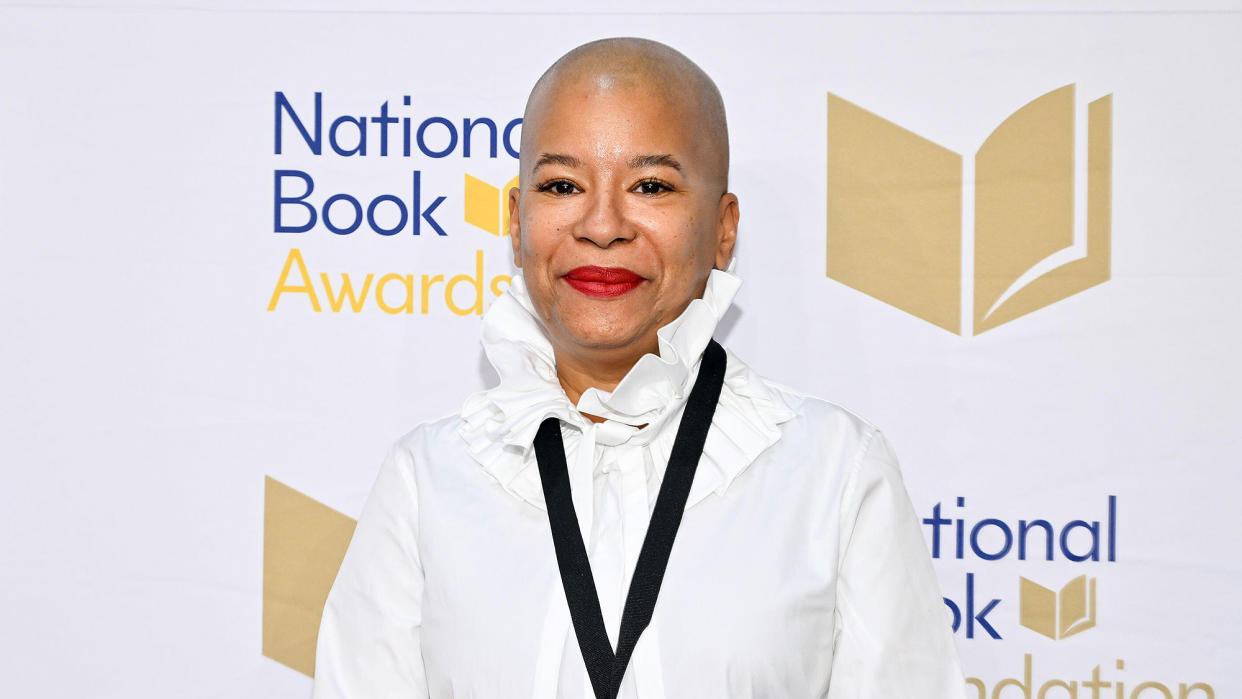Christina Sharpe, the influential author and intellectual who sees America as it is

- Oops!Something went wrong.Please try again later.
In early April, Christina Sharpe, the creative nonfiction author and professor at York University in Toronto, won the prestigious Windham Campbell prize. The prize givers wrote, "recalibrating images of Black existence, Christina Sharpe’s incisive, multi-layered work demands that we wrestle with brutality as we create meaning through language and art."
Prizes are all well and good, especially when they come with an unrestricted grant of $175,000. For Sharpe's admirers — and those fans are legion and include the authors, playwrights and artists Alexander Chee, Lynn Nottage and Simone Leigh — such a gift promises that Sharpe will continue thinking and writing. Who is the woman who inspires such accolades and devotion?
'A new intellectual renaissance'
Christina Sharpe was born in Pennsylvania. Her father died while Sharpe was young, and her mother, Ida, became caretaker, instilling in Sharpe a love of beauty and words. There was little disposable income so "in lieu of trips to the ballet or theater, Ida hosted Sunday salons where she served poundcake and tea, and mother and daughter read poetry to each other," said J Wortham in a profile of Sharpe in the New York Times Magazine.
Sharpe received a PhD in English from Cornell University, then taught at Tufts University, where she was the first Black woman to receive tenure in the English department. Her goal with her writing, as she noted in the video accompanying her Windham Campbell award: "Black people have deep theoretical understandings of the conditions under which we are living, and it was important to me to write books that spoke to those conditions."
Her second book, "In the Wake: On Blackness and Being," published in 2016 by Duke University Press, began to trickle across the Black intellectual wires. Sharpe unpacks the word "wake," tying its denotations and connotations to Blackness and Black life. The Middle Passage, the ripple effects of centuries of subjugation, funerals. Sharpe's readers were stupefied. "As a Black woman who works in publishing, I recognize what I'm seeing to be rare," said poet and writer Hafizah Augustus Geter about "In the Wake" in Harper's Bazaar. "Through this single text, I am witnessing a new intellectual renaissance. One that, in real time, I can track. I can trace In the Wake's wake in HBO's 'Watchmen,' in the movie 'Sorry to Bother You' and in Questlove's documentary, 'Summer of Soul.'" It is as though with Sharpe's clear-eyed perceptivity, a generation of thinkers and artists now had the intellectual framework to set into motion their own work.
'Ordinary Notes;' extraordinary care
Sharpe's latest work, "Ordinary Notes," is a collection of 248 vignettes that meld the personal, the theoretical and the historical. The book's unconventional structure was intentional. "I think what I wanted the notes to do was to build and accumulate, and thereby make an argument without my having to work an argument through in the ways that I have been taught to as an academic," Sharpe said during an episode of the literary podcast "Between the Covers."
In "Ordinary Notes," she considers and reconsiders her past, her hometown of Wayne, Pennsylvania, her tender relationship with her mother. She also upends presuppositions, as with Note 56: "I am annoyed by the phrase 'Black excellence.' It doesn't do the affirming work that many people who deploy it imagine that it does.… 'Black excellence' is the answer to a racist question."
Such is how Sharpe thinks: She liberates individuals and Black people in particular as she explodes meaning. When New York Times Magazine writer J Wortham sat in on one of Sharpe's class lectures, Sharpe held up a copy of Toni Morrison's novel "Beloved," and "read the title aloud: 'Beloved.' She paused and reframed the word for us. 'Be loved.' The name of the book, Sharpe told the class, is 'an injunction, a command, a wish, a plea, a lamentation.' To love the self, to believe the self worthy of love and to let that love radiate out and fill up others around you."
An acute thinker and visual arts enthusiast, Sharpe is attuned to both the communal and community. In her acceptance video for the Windham Campbell prize, she paraphrased a section from "In the Wake." "We Black people may have been constituted through — and by — overwhelming violence and force, but we are not known only to ourselves and to each other by that force."

